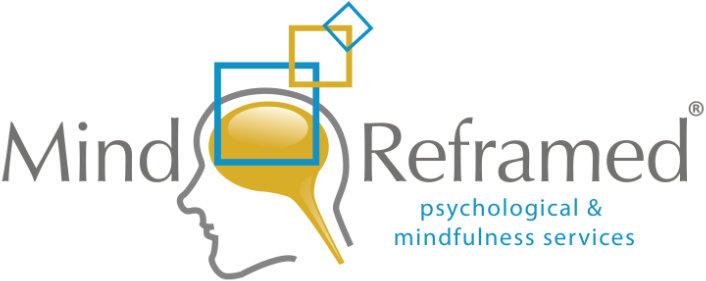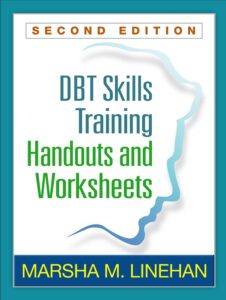
Welcome to our DBT programme! We’re delighted to offer a supportive and tried and tested approach to help you navigate life’s emotional ups and downs. Our comprehensive programme includes weekly one-on-one therapy sessions, engaging skills groups, and phone coaching to provide you with comprehensive support.
DBT was originally developed in the early 90s to help individuals with intense emotions and reactions, often labeled in medical circles as “borderline personality disorder.” Today, DBT skills are beneficial for anyone, regardless of diagnosis, who wants to manage “roller-coaster” emotions and improve their ability to handle distress and and safely experience and express emotions.
Our programme introduces proven strategies to address issues such as impulsivity, self-harm, depression, chronic shame, and emotional numbing through substances or food. It’s also effective for those living with ADHD and autism. If overwhelming distress and intense reactions are affecting your quality of life, particularly in relationships, DBT can help you resolve inner and outer conflicts and build a more satisfying, fulfilling life.
Where and When?
THE SATURDAY 10AM and 12:15PM GROUPS ARE NOW OFFERED IN-PERSON NEAR KING’S CROSS. THE REMAINING CLASSES ARE CURRENTLY AVAILABLE ONLY ONLINE VIA ZOOM. TIMINGS REMAIN THE SAME.
KING’S CROSS, ISLINGTON, LONDON: We hold two in-person DBT skills groups at Barnsbury Community Centre, 12 Jays Street, London, N1 0FE on Saturdays from 10am to 12pm* and from 12:15pm to 1:45pm. Nearest stations are King’s Cross (12 minutes walk), Caledonian Road & Barnsbury (14 minutes walk), Angel (15 minutes walk) or Caledonian Road (22 minutes walk).
- The next entry point to the Saturday classes is on 3rd August 2024 when we begin the 6-week module in Core Mindfulness & Middle Path Skills. The fee is £510 (£85 x 6 sessions). This class will be followed by modules in Distress Tolerance (21st September 2024), Interpersonal Effectiveness (16th November 2024) and Emotion Regulation (25th January 2025). Please note that sessions will not be held on Saturdays that fall on or close to Bank Holidays, i.e. 24th August and 21st and 28th December 2024.
ANGEL, ISLINGTON (CURRENTLY ONLY AVAILABLE ONLINE): We hold two DBT skills groups in Islington on Wednesdays from 6pm to 8pm* and Thursdays from 5:30pm to 7:30pm* at Brighter Spaces, 2A Prebend Street, Islington, London, N1 8PT.
- The next entry point to the Wednesday 6pm group is on 28th August 2024 when the 8-week module in Emotion Regulation Skills is scheduled to begin. The fee is £1,020 (£85 x 12 sessions). It will be followed by classes in Interpersonal Effectiveness (20th November 2024), Core Mindfulness & Middle Path (29th January 2025) and Distress Tolerance (start date to be confirmed). Sessions will not be held on 25th December 2024 and 1st January 2025.
- The next entry point to the Thursday 5:30pm group is on 19th September 2024 when the 6-week module in Core Mindfulness & Middle Path Skills is scheduled to begin. The fee for this class is £510 (£85 x 6 sessions). It will be followed by modules in Distress Tolerance (31st October 2024), Emotion Regulation (9th January 2025) and Interpersonal Effectiveness (3rd April 2025). Sessions will not be held on 26th December 2024 and 2nd January 2025.
ONLINE VIA ZOOM: The online skills groups are available on Mondays from 5:45pm-7:15pm and Tuesdays at 4pm-5:30pm and 6pm-7:30pm.
- The next entry point to the Monday 5:45pm group is on 19th August 2024 when the 6-week module in Core Mindfulness & Middle Path Skills is scheduled to begin. The fee is £510 (£85 x 6 sessions). It will be followed by modules in Distress Tolerance (7th October 2024), Emotion Regulation (2nd December 2024) and Interpersonal Effectiveness (10th March 2025). Sessions will not be held on Bank Holiday Mondays, i.e. 26th August and 23rd and 30th December 2024.
- The next entry point to the Tuesday 4pm and 6pm groups is on 3rd September 2024 when the 6-week module in Core Mindfulness & Middle Path Skills is scheduled to begin. The fee is £510 (£85 x 6 sessions). It will be followed by classes in Distress Tolerance (15th October 2024), Emotion Regulation (10th December 2024) and Interpersonal Effectiveness (18th March 2025). Sessions will not be held on 24th and 31st December 2024.
- The next 10-week Advanced Relationship Skills in Action module will begin on Wednesday 2nd October 2024 and be held weekly from 6pm to 7:30pm via Zoom. The fee is £85 per session (£850).
* Should a lower number of participants sign up for (or attend) the 2-hour group we reserve the right to make alterations to the group structure, e.g. we will remove the break between the homework review and teaching part of the group and shorten the group to 90 minutes. This is because in smaller groups less time is required for mindfulness and homework review. The group might also be facilitated by one facilitator at a time instead of two.
What is Dialectical Behaviour Therapy?
Dialectical Behaviour Therapy (DBT) is one of the most researched treatments for people with difficulties in regulating their emotions. DBT is a comprehensive team-based programme which entails weekly individual therapy, skills class, access to phone skills coaching available seven days a week and DBT team consultation*. DBT was originally developed in the late 1980s by Dr Marsha Linehan for self-harming individuals whose difficulties were described in the medical world as “borderline personality disorder” (BPD), also known as “emotion regulation disorder” or “emotionally unstable personality” (EUPD). Research finds that up to 77% of people no longer met the criteria for BPD or EUPD after one year of treatment with DBT. DBT was also proven helpful for bipolar disorder, substance misuse, eating disorders, post-traumatic stress and depression, and it has growing evidence-base for autism and ADHD.
Clients who are unable to commit to the comprehensive DBT programme can attend the skills classes alone without ongoing individual therapy (depending on the outcome of assessment or a referral letter). If you, or us, notice that you are struggling with any aspect of engaging in the skills group, 1:2:1 check-in sessions will be offered so that you can continue benefiting from the group. We also recommend that arrangements are made for ongoing external one-to-one support. Please note that the programme is offered on a rolling basis and that group participants will be at various stages of their skills training.
* Individual therapists and group facilitators meet on a weekly basis and work as a DBT consultation team to ensure that they are all applying DBT appropriately and to assist you in getting the maximum benefit from the programme.
What will I learn?
There are four core DBT modules which are offered on a rolling basis and can be attended as part of the full DBT programme or on a module-by-module basis. It takes 34 weeks to complete them all once. If your goals revolve particularly around enhancing relationships you can also attend the advanced 10-week module called ‘Relationship Skills in Action’. Subject to individual circumstances and the review offered by our team it might be indicated to repeat the modules and/or extend your place on the programme to solidify your use of skills.
- 6-week Core Mindfulness and Middle Path module is designed to teach you how to increase your awareness levels, decrease reactivity, habitual behaviour and judgmentalness, train your attention, allow current moment experiences instead of suppressing, avoiding or constantly changing them, and how to be more compassionate towards yourself. This module will also teach you how to avoid taking extreme positions and instead acknowledge the validity of different positions and perspectives.
- 8-week Distress Tolerance module is centred on accepting difficult situations and emotions and finding ways to survive and tolerate the moment without engaging in problematic behaviours such as self-harm, conflict, substance misuse or other impulsive behaviours. You will learn how to respond to stressful and overwhelming emotions by engaging both your body and mind in the process. This module will cover both strategies of change and acceptance.
- 12-week Emotion Regulation module involves learning to recognise and label current emotions, identify obstacles to changing emotions, reduce emotional vulnerability and reactivity, increase positive emotions and harness a more positive long-term outlook, and change emotions that are unhelpful or unwarranted. This module will also teach you how to gradually decrease avoidance of feelings and become more comfortable experiencing emotions.
- 8-week Interpersonal Effectiveness module teaches strategies aimed at fostering healthy relationships, resolving internal and interpersonal conflict, and increasing self-confidence to act assertively. You will learn skills to ask for what you need, say no, set boundaries and cope with interpersonal tension in ways that influence others whilst enhancing the relationship and your self-respect. This module is of particular relevance to individuals who experience their relationships as chaotic, intense and unstable, and those who feel that their needs are never met in relationships.
- 10-week Advanced Relationship Skills in Action is a module for people who have attended the Interpersonal Effectiveness DBT module and want to enhance their relationship skills further. In this module you will learn about social engagement system and how interactions affect your nervous system and that of the other person, the theory and practice of dialectical thinking, balancing opposites, how to balance intense desire to influence someone with acceptance of the moment, validation of self and others and its impact on conflict resolution and emotion regulation, recovering from invalidation, building new relationships, getting people to like you and strategies for relational reinforcement. There will also be two practice sessions to immerse yourself in the application of the skills. You will be able to bring your own real life scenarios and receive suggestions from the group trainer on how to approach them skilfully.
How will I learn?
DBT classes are designed to be interactive, not where you passively listen to the facilitator. You can expect to be challenged by the didactics, demonstrations and discussions. The aim of this approach is to encourage you to help you maximise your use of the tools that you will be learning. New skills are presented each week and homework tasks are assigned for participants to practice during the week. Homework is reviewed at the next class. To enhance learning and effective application of newly acquired knowledge and skills people who commit to the full DBT programme will have access to phone skills coaching, which can be accessed at times of heightened distress seven days a week. The goal of this is for people to get better at using the skills when they are needed most, such as during times of intense emotion, crisis or conflict.
Who should join the programme?
There is no specific diagnostic requirement for participation in our programme. If any of the following challenges interfere with the quality of your life, whether you were given a formal diagnosis or not, DBT can help.
- Emotional sensitivity and difficulties returning to a calm emotional baseline
- Episodes of extreme emotional pain and attempts to stop it with self-harm, alcohol, substances or sex
- Enormous fear of abandonment and trying to avoid it at all costs
- Rapidly changing moods, anger, recurrent depression, feelings of guilt and shame and high stress
- Chaotic relationships where you either frantically pursue or impulsively cut others off
- Intense emotions and unmanageable distress which lead you to behaving in ways that you don’t understand
- Impulsive urges and behaviours that lead to feelings of shame, regret or self-hate
- DBT has also been shown to help those who experience emotion dysregulation in the wider context of living with autism and neurodiversity and is now the go-to treatment for improving emotional regulation skills in those diagnosed with ADHD and ADD
- The skills classes are also suitable for people who are on the DBT for Complex Trauma programme with our team, and for those who are engaging in the stabilisation and safety stage of trauma-focused therapy outside of our team
- The skills classes can be adjunct to outside care or a part of a larger treatment plan and can be applied as a treatment for some eating and mood difficulties, bipolar disorder, post-traumatic stress and substance misuse.
Exclusion criteria
- Uncontrolled psychosis
- Severe developmental delay or intellectual disabilities
- Cognitive impairment
- Active addictions
- Certain narcissistic personality presentations
- Behaviours and presentations which might impact on group learning
- DBT focuses a lot on finding coping methods to stop impulsive behaviour and learning to appropriately respond to stressful events. If changing behaviour and increasing your repertoire of skills aren’t the main thing you want to get out of treatment, DBT might not be right for you
How to begin?
All individuals interested in joining the full programme will be assessed by a member of our team. To find out more about our team please visit the About Us section of this website and if you have a preference let us know which therapist you wish to be assessed by. Following the assessment we meet as a team to carefully consider your therapy plan.
If you would like to attend the skills classes without committing to the comprehensive programme, you can provide a letter of recommendation from your psychiatrist or therapist describing your mental health and developmental history. The letter needs to provide a detailed account of patterns of dysregulation in emotion and behaviour, history of risk (including self-harm, suicide attempts and hospitalisations), current and/or previous engagement with other services and therapeutic endeavours.
Following this you will be offered three one-to-one orientation sessions which will introduce you to some fundamental DBT theories, tools and crisis skills (in some circumstances these sessions might be optional). We will also talk you through a roadmap of your treatment going forward, answer your questions and agree on a start date in the skills group.
Fees
Fees for the comprehensive DBT programme (individual therapy, skills class and phone skills coaching) range between £185 and £220 a week. For the breakdown of fees please click here. It is also possible to commit to attending the DBT skills groups alone for which the fee is £85 per class. We offer a small number of concessionary places in the DBT groups to people on low income.
To formally reserve a place in the skills group 50% of the module fee must be paid at the time of booking which is non-refundable. The remaining part of the fee is due a week before the official start date of the module. It is only possible to commit to a full module and the fee is payable for all of the sessions. This includes sessions that are not attended, missed or cancelled for any reason.





